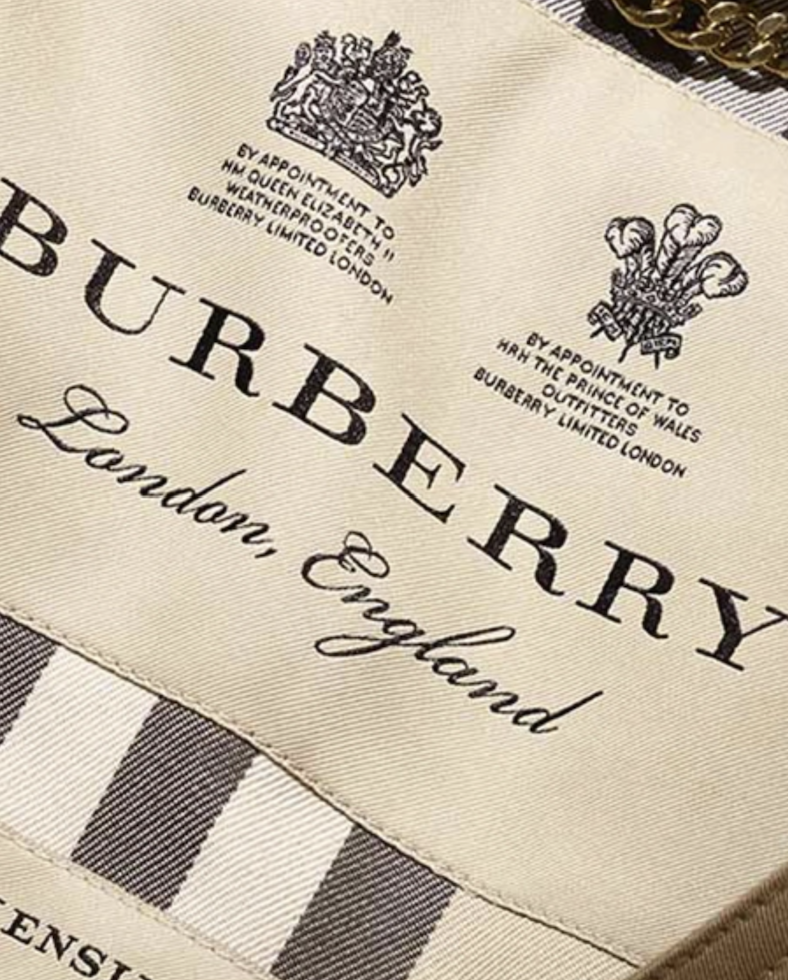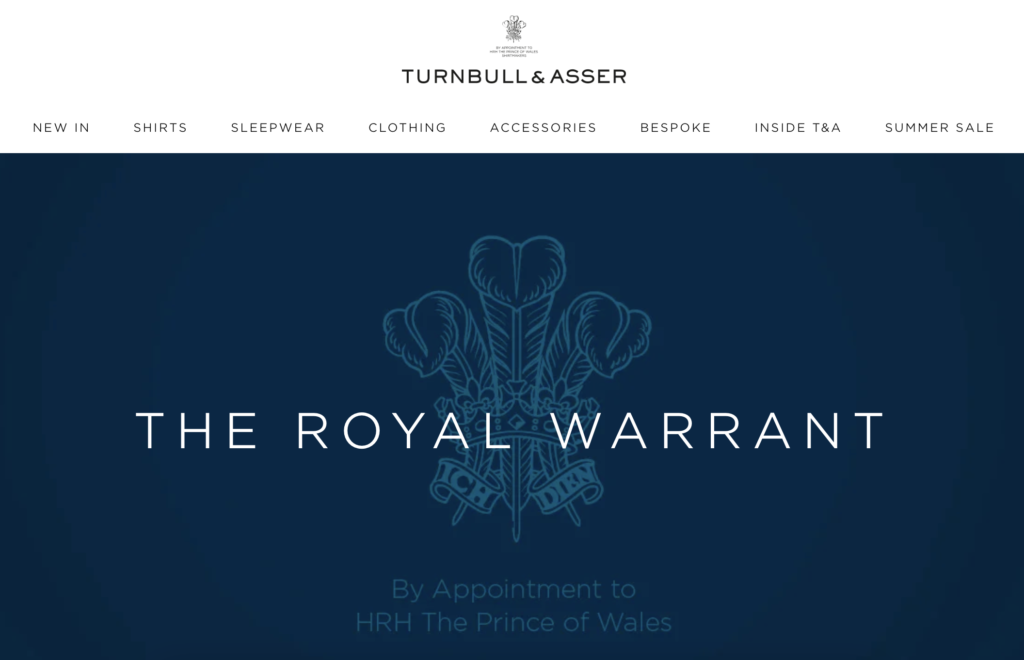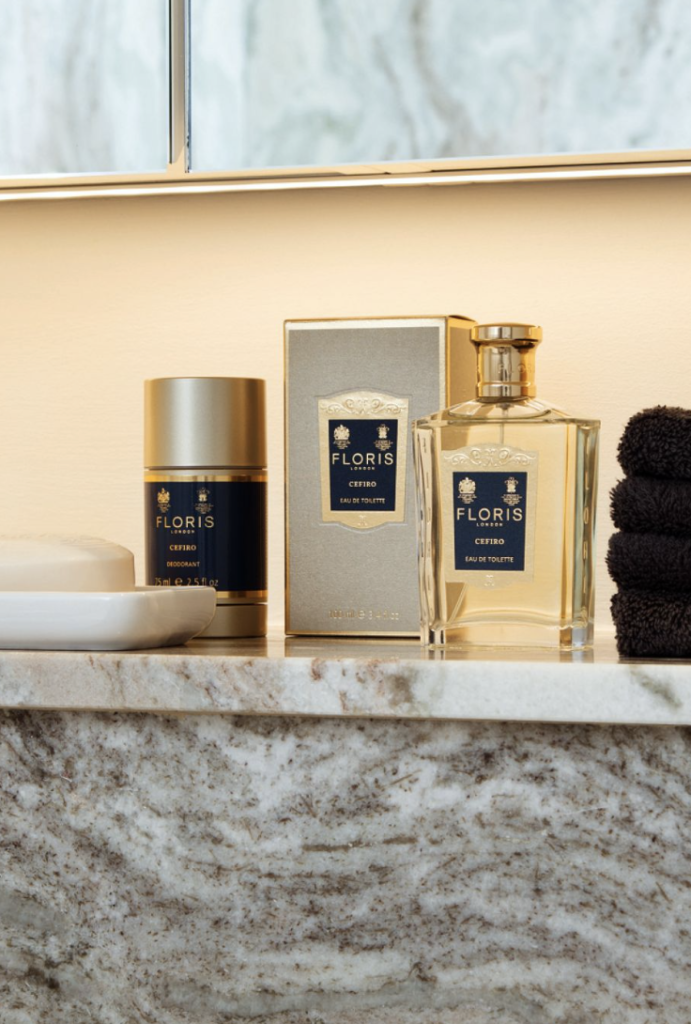The current era of the social media influencer might only date back to the early 2000s, but the act of influencing? That’s actually centuries old. Over 500 years, to be exact. Our culture has been built in such a way that people seek out a stamp of approval for almost everything from a trusted source: the food they buy, the parties they attend, the hotels they stay at and even the time-saving habits they adopt. One of the first few individuals to serve as an arbiter of good taste was, of course, a member of the British monarchy with their Royal Warrants.
From hunting jackets to tea, vacuums and wine—even software for digital asset management—there are hundreds of brands that can currently boast that they’re used and even beloved by the ultimate influencer: The newly appointed King of England. But also the late Queen (more on that below) and eventually, the Prince and Princess of Wales.
What is a Royal Warrant?
Among the first recipients of a Royal Warrant was William Caxton, whose printing press made him the royal printer to the King in 1476. Since the 15th century, royal warrants have been awarded to the tradespeople who regularly provided their services or products to the royal court.

More recently, the over 800 current Royal Warrants are maintained under the watchful eye of the Royal Warrant Holders Association. They’re the firm that confirms said products are frequently used by select members of the royal household, for at least 5 of the last 7 years. The Association also makes sure these brands follow stringent guidelines, which include being discreet and tight-lipped about their work with the monarchs, and to have “an appropriate environmental and sustainability policy and action plan.” How modern is that?
The prestigious brands who fall into this category (and follow the rules) are granted the right to advertise their status as a royal fave by displaying the Royal Arms on their products, in their various marketing materials and so on. But if they disobey the Association? They’ll go the erstwhile route of Harrod’s, whose warrant was revoked in 2000 after 44 years due to what Buckingham Palace claimed was a “significant decline in the trading relationship.” However, it more likely had to do with the famed department store owner, Mohamed Al Fayed, accusing the Duke of Edinburgh of creating a plot to murder his late son and his girlfriend, Princess Diana. Since the list of brands is reviewed periodically, it’s also possible to lose a Royal Warrant if it’s believed the quality of a product begins to decline or if it’s no longer of use to the monarchy.

Much like social media influencers, this successful long-term partnership will really only be successful if it’s authentic. Because while it’s highly unlikely that King Charles is a fan of J.Crew, it’s far more on-brand and believable that his wardrobe is stocked with bespoke button-downs crafted by Turnbull & Asser. He bestowed his approval on the brand back in the ‘80s, giving Turnbull & Asser his very first Royal Warrant, once he was given the power to issue them. The menswear brand proudly displays the Royal Arms on its website and have tastefully disclosed that this level of prestige has led to an increase in revenue and a boom in international clientele.
As you might’ve gathered by the Harrod’s story, a scandal or misuse can lead to a Royal Warrant being revoked. Lingerie label Rigby & Peller, who used to craft undies for the Queen, lost their status after the brand’s director June Kenton discussed her work with the Crown in a tell-all book. While not quite as dramatic as being canceled on the internet, this does mirror actions that a brand would take to drop an influencer who publicly goes against their brand values—and vice versa. Like how makeup brand Morphe severed ties with influencer James Charles after he was accused of sexual misconduct in a scandal that included minors.

But what happens to the items that have been granted a Royal Warrant by the late Queen Elizabeth? Technically speaking, the Royal Warrants she bestowed became void after her death. But the 620 or so businesses who have been used and enjoyed by Her Royal Highness—including Coca-Cola, Cadbury and exactly nine champagne labels—will be able to use the royal coat of arms on their websites, on packaging and in official documents for the next two years.
Why Do Royal Warrants Work?
The Royal family has long maintained an image that’s at once prestigious and beloved, making their every move a sensation both within the U.K. and beyond the borders of the countries they represent. As positive, polished figureheads, who reap no financial benefit from the brands they grant a Royal Warrant to, their suggestions are well-regarded by the broader public.
Similar to the mega influencers who are popular and respected by their audiences—especially those who are hyper-selective about the brands they partner with—there’s a level of trust that’s cultivated. And that’s what sells products. It’s a high-quality partnership that feels exclusive while not overtly shilling a product to make a buck. Instead, it’s a tasteful individual putting a thoughtful stamp of approval on something they genuinely use, like and enjoy.
What Can We Learn from Royal Warrants?
Aside from the obvious detail that Royal Warrants have been around for 500 years, they actually work in a mutually beneficial way. They tend to humanize the royals while effectively and authentically promoting products.

From a brand perspective, it’s imperative to think critically and really consider the individuals that are chosen to endorse their products. By selecting individuals that best represent their values or those who already have a sense of adoration and acceptance by the public might be the best way to forge a long lasting and hopefully successful partnership. It’s also not a bad way to avoid scandal while working towards building a carefully crafted profile.
Remember, not all stamps of approval are created equal. Some creators can hold more weight in the mind of shoppers—and you want to make sure they’re speaking to the right audience.
